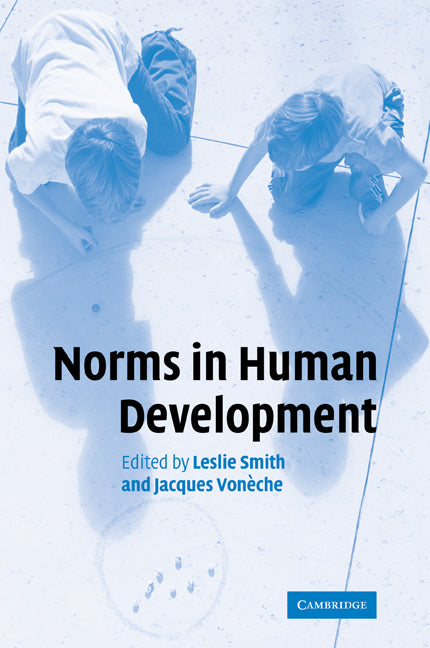Freshly Printed - allow 8 days lead
Couldn't load pickup availability
Norms in Human Development
The distinction between norms and facts is long-standing in providing a challenge for psychology.
Leslie Smith (Edited by), Jacques Vonèche (Edited by)
9780521103299, Cambridge University Press
Paperback / softback, published 19 March 2009
304 pages, 4 tables
22.9 x 15.2 x 1.7 cm, 0.45 kg
The distinction between norms and facts is long-standing in providing a challenge for psychology. Norms exist as directives, commands, rules, customs and ideals, playing a constitutive role in human action and thought. Norms lay down 'what has to be' (the necessary, possible or impossible) and 'what has to be done' (the obligatory, the permitted or the forbidden) and so go beyond the 'is' of causality. During two millennia, norms made an essential contribution to accounts of the mind, yet the twentieth century witnessed an abrupt change in the science of psychology where norms were typically either excluded altogether or reduced to causes. The central argument in this book is twofold. Firstly, the approach in twentieth-century psychology is flawed. Secondly, norms operating interdependently with causes can be investigated empirically and theoretically in cognition, culture and morality. Human development is a norm-laden process.
1. Norms in human development: introduction Leslie Smith
Part I. Norms and development in epistemology: 2. The implicit normativity of developmental psychology Jacques Voneche
3. Developmental normativity and normative development Mark H. Bickhard
4. Genetic epistemology: naturalistic epistemology vs normative epistemology Richard F. Kitchener
5. Norms and normative facts in human development Leslie Smith
Part II. Norms in moral and social development: 6. Contextualising moral judgement Lutz H. Eckensberger
7. The development of obligations and responsibilities in cultural context Monika Keller
8. The multiplicity of social norms: the case for psychological constructivism and social epistemologies Elliot Turiel
Part III. Norms in cognitive development: 9. Can psychology be a quantitative science, or is Kant right after all? Normative issues in psychometrics Peter C. M. Molenaar
10. Norms and intuitions in the assessment of chance Vittorio Girotto and Michel Gonzalez
11. Making conditional inferences: the interplay between knowledge and logic Henry Markovits
References
Index.
Subject Areas: Child & developmental psychology [JMC], Philosophy [HP]


